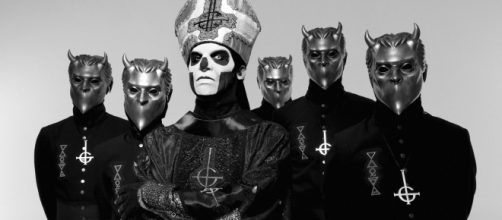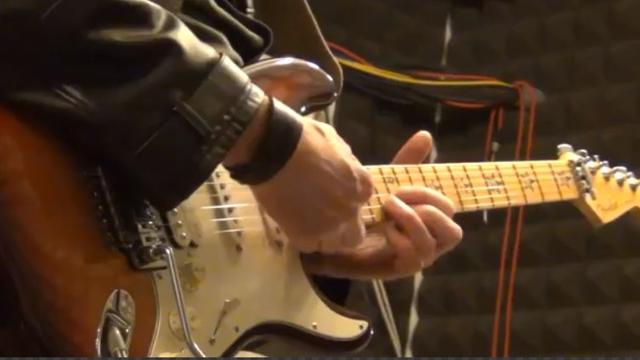In such a competitive industry, it is not unseen for an artist to utilise elements of anonymity in their music and live performances. Now, following Ghost’s one-off concert in the UK two days ago, the impact of a musician remaining unknown in the music industry remains prominent.
Ghost's use of anonymity in their performance
Captivating audiences since 2010 with their ambiguous, mirage-esque image, the band Ghost have always be seen to adopt the theme of anonymity. It has been known for the band to feature many household-name musicians in their lineup under the disguise of ‘The Nameless Ghouls’.
Unbeknownst to fans, world-renowned frontman of Foo Fighters and drummer of Grunge band Nirvana, Dave Grohl has played gigs with the band in this guise on numerous occasions, only to be revealed following the concert.
With the members playing during Sunday’s concert still remaining unknown, acknowledged on the night merely as ‘The Ghouls’, the intrigue generated leads to an understanding why so many artists feature disguise in their image.
How the motif is prominent across the industry
It is impossible to remain oblivious to the growing number of artists pushing music towards us from behind a mask. Other than Ghost, artists such as Sia, Daft Punk and Slipknot have all become famed upon using a disguise alongside their music.
Now, with more and more musicians insisting that their image demands just as much recognition as the music itself, one could easily assume why. In this case, it may appear that the most straightforward explanation is the most accurate: by denying a full insight into an artist, sheer intrigue simply forces audiences to gravitate towards the music.
Although to some it may seem like a cheap gimmick to provoke attention, the incorporation of anonymity in a band may actually be used to achieve the opposite. Rather than becoming famed merely on personality, the decision to become ‘faceless’ forces listeners to acknowledge the talent behind the music, instead of the face at the forefront.
This may coincide with an active retaliation of many musicians against the rise of streaming.
With the music scene around us becoming increasingly reliant on downloads, appearance and popularity, the introduction of nameless and dehumanised musicians may be seen to rebel against an image-orientated industry. Going against the grain of increasing streaming; anonymity encourages people to focus on the musicality and aura of a band, which cannot always be conveyed via digital listening.
The impact of remaining anonymous on an artist
Whilst being an industry countless people aspire to conquer, there is little ambiguity as to the decline of originality in the current world of music. Yet, with musicians now sporting a distinctive, although un-personified image inextricably linked to their act, one does not have to look far to see which artists break the mould to stand out from the rest of the competition.
Filling prestigious venue, The Royal Albert Hall, Ghost demonstrated how their image founded upon anonymity was able to fuel and revive the dying art of live performance, something many artists are now dependent on.
Almost resembling ancient Greek literature and drama, the artists utilising disguise and performativity give a new lease of life to the experience of a concert. None have demonstrated this more elegantly than Ghost. The mystery regarding the musicians’ identity, paired alongside extreme elements of theatricality (seen with iconic personas and customisation of the stage) all successfully generate intrigue to witness them perform live.
The future of the music industry
Something more than merely a series of live renditions of the songs, the motif of anonymity and image created by these musicians has turned music into an experience worth funding and interacting with.
From this, the industry once increasingly weighed down from the rise of streaming, is now beginning to rise.
Almost mirroring a play, the use of theatricality converts the content of an album into something more. Placing emphasis on image and gathering intrigue, anonymity has revived live performance and recreated a sense of connection between musicians and fans- giving the industry back the much-needed sense of individuality it sorely lacked.




